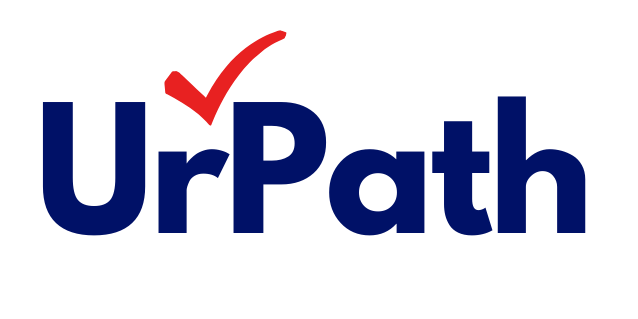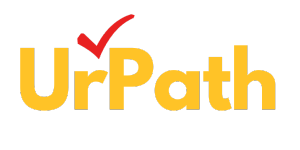The Critical Need for AI Integration in Higher Education: A Deep Dive into the Future of Learning
Hayoung Kim • September 30, 2024
Book Your Free Initial Consultation Today
AI Integration: A Game Changer for Higher Education Institutions
As we move deeper into the 21st century, the pressures on higher education institutions to innovate and adapt have reached unprecedented levels. With rapid advancements in technology, particularly artificial intelligence (AI), these institutions must embrace new tools to remain competitive, ensure student success, and stay relevant in an ever-evolving job market. This article examines why AI integration is critical for higher education, the tangible benefits of adopting AI-driven technologies, and how various tools are revolutionizing student success and job readiness.
AI Integration: A Game Changer for Higher Education Institutions
1. Transforming Institutional Operations Through AI
AI technologies can streamline operations within higher education institutions by automating repetitive tasks, analyzing vast data sets, and optimizing resources. Tools powered by AI can manage everything from student enrollment processes to financial aid distributions, freeing up administrative staff to focus on more complex tasks. AI algorithms can predict patterns in student behavior, helping institutions allocate resources more effectively to address potential challenges, such as high dropout rates or academic underperformance.
For instance, AI-powered predictive analytics can forecast when a student is at risk of dropping out based on behavioral patterns, attendance, and academic performance. Early intervention strategies, tailored specifically to each student's needs, can then be implemented. By enhancing institutional efficiency, AI ensures that education providers can focus more on delivering high-quality teaching and less on logistical burdens.
2. Revolutionizing Teaching and Learning Methods
AI’s ability to personalize learning environments is perhaps its most transformative contribution. Traditionally, higher education has relied on a "one-size-fits-all" approach, with standardized curricula and teaching methods. However, AI can enable individualized learning plans for students by assessing each student’s strengths, weaknesses, and preferred learning methods. AI-powered platforms can adjust coursework in real time, ensuring students are constantly challenged but not overwhelmed.
For example, AI-driven tutoring systems can adapt learning content based on a student’s progress, offering additional resources or alternative explanations for difficult concepts. Moreover, AI can assist faculty by automating grading processes and assessing student performance more effectively. This allows educators to focus on teaching and mentoring, creating a more supportive and enriched learning environment.
3. Data-Driven Decision-Making for Institutional Success
Higher education institutions generate massive amounts of data daily. However, without the ability to analyze and make sense of this data, much of its value is lost. AI can help institutions sift through these data sets, uncovering patterns and trends that would otherwise go unnoticed. AI algorithms can provide insights on how students engage with various academic programs, identify which programs are in demand, and highlight where resources should be invested.
With these insights, decision-makers can fine-tune their academic offerings, ensuring that they remain relevant to the needs of students and the workforce. By leveraging AI’s data analytics capabilities, institutions can future-proof themselves, adapting swiftly to changes in student demand, technological advancements, and labor market needs.
4. Maximizing Students' Return on Investment (ROI) Through Career Success
A significant concern for students is ensuring that their education translates into meaningful employment opportunities. AI is now playing a crucial role in supporting students with job applications, helping them stand out in a highly competitive job market. By analyzing job descriptions, optimizing resumes, and matching students with relevant positions, AI-driven tools are streamlining the path from education to employment.
Many tools assist students in the job application process by providing personalized skill assessments and optimizing application materials tailored to specific job roles. These platforms help students effectively highlight their strengths and qualifications, increasing their chances of securing employment. As a result, higher education institutions benefit by supporting their graduates in maximizing the ROI on their tuition investment. Institutions that integrate such tools into their career services will not only enhance student satisfaction but also improve their overall employment statistics, strengthening their reputation in the competitive education landscape. If you're interested in learning more about how these tools can benefit your institution, please feel free to reach out to us.
Surviving and Thriving in the 21st Century: AI as a Competitive Differentiator
1. The Need to Innovate in a Global Education Market
The higher education landscape is more competitive than ever before. Institutions face competition not only from other universities but also from alternative learning platforms such as coding boot camps and online education providers. To remain attractive to prospective students, institutions must offer more than just traditional degree programs—they must also provide cutting-edge, AI-driven learning experiences.
AI can differentiate institutions by offering AI-powered degree programs, innovative teaching methods, and personalized career counseling services. By integrating AI into their infrastructure, institutions position themselves as leaders in innovation, attracting students who value technological proficiency as part of their education.
2. Addressing the Global Demand for Talent
The job market is undergoing a significant shift, with automation and AI technologies reshaping industries. The skills required to thrive in this market are constantly evolving. Institutions that incorporate AI into their curricula are better equipped to prepare students for future job roles, many of which have yet to be defined. This proactive approach ensures that graduates are not only prepared for the current job market but are also equipped with the adaptive learning skills required for lifelong career success.
Preparing Students for an AI-Driven Workforce
1. Teaching the Skills of Tomorrow
The integration of AI into higher education doesn’t stop at institutional operations. Students must also learn to navigate and work alongside AI technologies in their future careers. As AI reshapes industries from healthcare to finance, the demand for professionals who understand how to leverage AI tools will continue to grow. Institutions that teach students AI literacy—from data analysis to machine learning—ensure their graduates remain competitive in a technology-driven workforce.
2. Building Critical Thinking and Adaptability
While AI will automate many tasks, soft skills such as creativity, problem-solving, and critical thinking will become even more valuable in the workforce. Institutions must strike a balance by teaching students how to use AI technologies while also fostering the human skills that AI cannot replicate. By doing so, they prepare students for a future in which human-AI collaboration is the norm.
3. Lifelong Learning and Professional Growth
The integration of AI into higher education ensures that students are prepared not just for their first job, but for a lifetime of career growth. AI-powered platforms provide continuous learning opportunities and career support, enabling students to stay competitive in a rapidly evolving job market. As new technologies emerge, AI systems can guide graduates toward acquiring the necessary skills and certifications to remain relevant in their chosen fields.
Conclusion: AI is the Future of Higher Education
The integration of AI into higher education is no longer a futuristic ideal; it is a present-day necessity. Institutions that fail to embrace AI will find themselves falling behind in a world where technology drives everything from student success to institutional efficiency. AI offers unparalleled opportunities to streamline operations, personalize learning, and, most importantly, equip students with the skills and tools they need to thrive in an ever-changing job market.
AI-driven platforms are transforming the way students approach job applications, helping them maximize the value of their education by accelerating their path to meaningful employment. The future of education is AI-driven, and those who embrace this technology now will be the ones shaping that future for generations to come.
Got Any Questions?

Entering the U.S. education market can unlock transformative growth for EdTech companies—but it requires more than just a great product. To truly resonate with U.S. institutions, decision-makers, and students, foreign EdTech firms must understand the landscape, build trust, and execute a strategic, localized approach. Here are the essential steps to building a strong U.S. market strategy—and how we can help you every step of the way. 1. Understand the U.S. Education Ecosystem The U.S. education system is complex and decentralized, with thousands of independent decision-makers across K–12 districts, higher education institutions, and public agencies. It’s critical to understand how funding works, who holds purchasing power, and what challenges institutions are trying to solve. We help you navigate this landscape by providing market insights and identifying the right entry points for your solution. 2. Tailor Your Messaging for the U.S. Audience What works in one market may fall flat in another. U.S. educators and institutions care deeply about outcomes, alignment with curriculum standards, ease of implementation, and student impact. Your marketing materials, demo content, and success stories must speak directly to these concerns. Our team works with you to localize your messaging, refine your value proposition, and ensure your brand connects with the right stakeholders. 3. Build Early Trust Through Field Marketing Participating in local conferences, school district events, or university expos is a great way to meet decision-makers and showcase your commitment to the market. Being physically present helps establish trust—especially in a relationship-driven environment like education. We support your field marketing efforts with planning, outreach, and on-the-ground execution. 4. Establish Strategic Partnerships Collaborating with the right partners—whether it’s a local distributor, a university department, or a state-run initiative—can accelerate your growth. These relationships open doors to pilot programs, case studies, and future expansion. Through our network, we introduce you to key institutional contacts and help you form partnerships aligned with your mission. 5. Commit to Long-Term Engagement Success in the U.S. market rarely happens overnight. It requires persistence, follow-up, and a willingness to listen, learn, and adapt. Schools and universities want to know you’ll be there for the long run. We help you build a U.S. presence with sustained marketing support, strategic planning, and relationship-building that lasts. Ready to Grow in the U.S.? If you're an international EdTech company ready to connect with the U.S. market in a meaningful way, we’re here to help. Our U.S. Strategy Support service is designed to guide you through every stage—from market entry to long-term success. Let’s explore what’s possible—together.

South Korea is a global leader in education and technology, with strong public investment in lifelong learning, digital upskilling, and future workforce development. For EdTech companies looking to expand, Korea presents a unique opportunity—but only for those who are ready to approach it with insight and intention. Entering this market requires far more than translating your content or launching a local version of your platform. Success demands a deep understanding of Korea’s education culture, government priorities, and the trust-based relationships that drive decision-making. That’s where our Korea Strategy Support comes in. Deep Market Insight for Real Growth We help you understand Korea’s education landscape from the inside out—so you can enter with clarity, not guesswork. This includes: How public education is structured across national, regional, and local levels Who the real decision-makers are in institutions and government What current challenges and trends are shaping the market How EdTech solutions are evaluated and adopted in both K–12 and higher education Our goal is to give you the strategic insight needed to make smart decisions and avoid costly missteps. We Connect You to the Right People We don’t just share knowledge—we open doors. Over the years, we’ve built trusted relationships with Korean universities, vocational schools, lifelong learning centers, and regional government agencies. We’ll help you: Identify the right institutional or public-sector audiences Facilitate introductions and support outreach efforts Position your offering to meet local goals and cultural expectations Form lasting partnerships built on shared educational values Whether you're looking to launch a pilot, form a licensing agreement, or scale in a specific region, we tailor the strategy around your mission and Korea’s needs. Strategy That’s Built on Trust In Korea, reputation and relationships are everything. We guide you on how to align your brand and messaging with local expectations—helping you build credibility, understand the timing of government cycles, and prepare materials that resonate with institutional leaders. With our insight and guidance, you're not just entering a new market—you’re building a meaningful presence. Let’s Explore Korea Together Korea is more than a strategic opportunity—it’s a chance to make a real impact in a country that deeply values education and innovation. We’re here to help you approach it the right way. If you’re ready to explore what’s possible, we’re ready to guide you.


